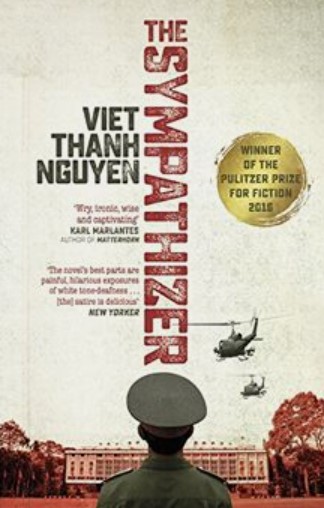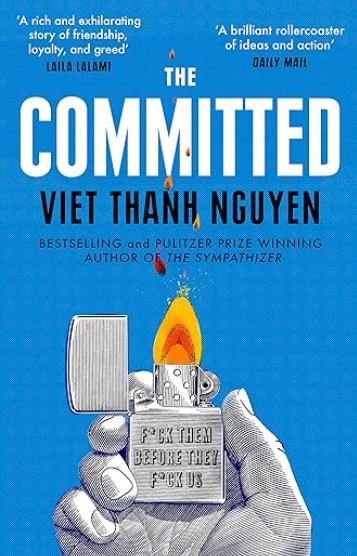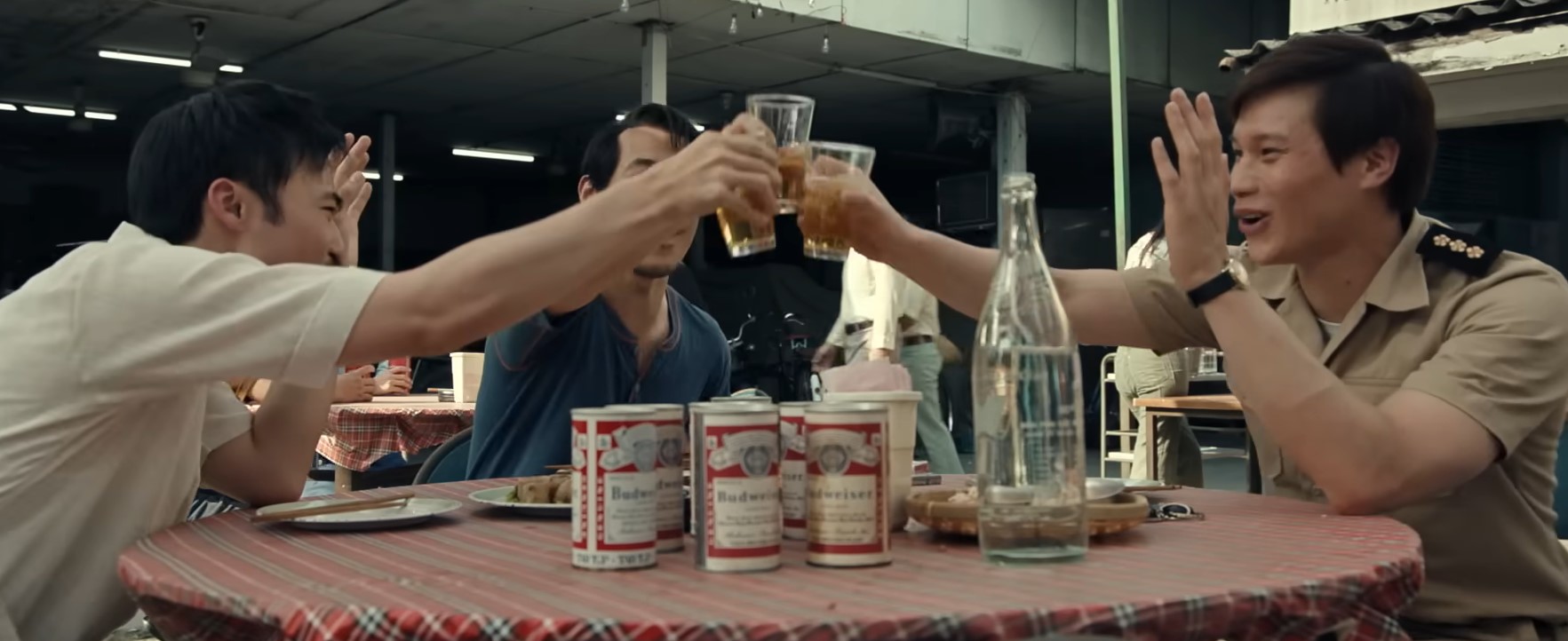Book review by John Pickard
The two novels by this author, The Sympathizer and The Committed, are the best novels I have read in recent years. They deal with the immediate end of the Vietnam War and the life and activity of a communist agent who had been planted inside the secret police of the puppet military regime in the South, where he served as a Captain.
Although the author makes it clear that the books are not autobiographical, he has made use of extensive research and interviews with people who had been through some of the experiences related in the books. The overall effect appears biographical, as it is told in the first person by the main protagonist, the Captain, under his baptismal name, ‘Joseph’.
Throughout both books we read of the shifting relationship between three young Vietnamese men, Bon, Man and the Captain, three ‘blood brothers’ from their early youth, but not with the same political outlook. They are pictured above, in the TV adaptation, before the fall of the US-backed government, with the Captain on the right.
The first book is begins in the last few weeks of the war in Vietnam, with the USA forces and their supporters facing certain defeat. Afterwards, although he would have preferred to stay and enjoy the victory, the Captain instead becomes embedded in the exiled Vietnamese community, now in the United States, where he continues his work as a spy for the communists.
A central theme recurring throughout this book is the Captain’s witnessing of the torture of a woman communist, who he knew and who new him as being a spy, but who despite being horribly abused, did not give him away. Although it would be giving away too much to say how it comes about, the actual narrative is contextualised as a ‘confession’, written in a ‘re-education’ camp back in Vietnam after the communists take over. In that sense, the fate of the woman communist is a key issue.

This first book has been turned into a TV series and, at least as far as this reviewer is concerned, it is one that sticks more or less faithfully to the book. It is well worth watching in its own right, whether you read the book or not.
In the second book, the Captain is now out of Vietnam for a second time and he ends up in Paris, mixing with the criminal underworld and becoming involved in the violent rivalry between drug gangs: one of Vietnamese and Chinese members and another whose members were of Arab/Algerian extraction. It is not very often that a sequel is more interesting and engaging than its original, but The Committed is at least as good as The Sympathizer in the various twists and turns in the fortunes of the gangs and their members.
What forms a broad seam running through both of these books is the relationship between the Vietnamese, as experienced by the Captain himself, and their western would-be masters and bosses, the Americans in the first book and the French in the second. Notwithstanding the fact that he can speak perfect English and then French, Joseph experiences at first hand the suspicion, condescension and high-handedness of white society towards their former colonial subjects.
Whatever, the ‘official’ public policy and statements may say, it is quite clear that the US and French political classes, including sections of the ‘respectable’ middle class had a superior and racist attitude to ordinary Vietnamese, an attitude moulded by their imperialist past.

Time and again, Nguyen points to the overt and sometimes unspoken racism he comes up against in his time in the USA and then later in France. He analyses and looks at these issues in some depth and with great insight. He even challenges – absolutely correctly – the use of words that show established racist patterns of thought. As he explains, for example, a straight-faced westerner, might be described as ‘poker-faced’, something to be admired, whereas an unsmiling oriental is described as ‘inscrutable’, a trait more worthy of suspicion.
Nguyen is a skilful writer and he is able to weave these comments and observations through the books, but without damaging the narrative or dimishing the pace of events he describes.
One possible weakness in both books lies in the fact that they give accounts from a wholly personal perspective. That’s OK as far as it goes, because, to be fair, Nguyen hasn’t set out to write political non-fiction. To get a better understanding of the life and the political complexion of, say, French workers of Arab extraction, you would need to read a different book with a broader and deeper perspective. That’s not what was on offer here.
Although there were small glimpses. This, for example, comes near the end of the second book: “…people do not have to be oppressed to march against oppression, in solidarity, against all kinds of racism, including the racism that benefits them as French people who are not Arab, or African, or black, or Muslim, or immigrant.”
You are left with the impression that the protagonist, the Captain, is aware of the monstrous iniquities of capitalism but also understands that it has a necessary concomitant – racism. He is also aware of, and has great misgivings about, the end results and the subsequent distortions of the Vietnamese revolution after the defeat of the USA. But you are left with the sense that he still remains revolutionary in both spirit and inclination: despite everything that happens to him, he remains both a ‘sympathiser’ and someone ‘committed’ to something better. Overall, though, two very good books, well worth the read
The picture top is from the official trailer of the TV series, from YouTube here.



